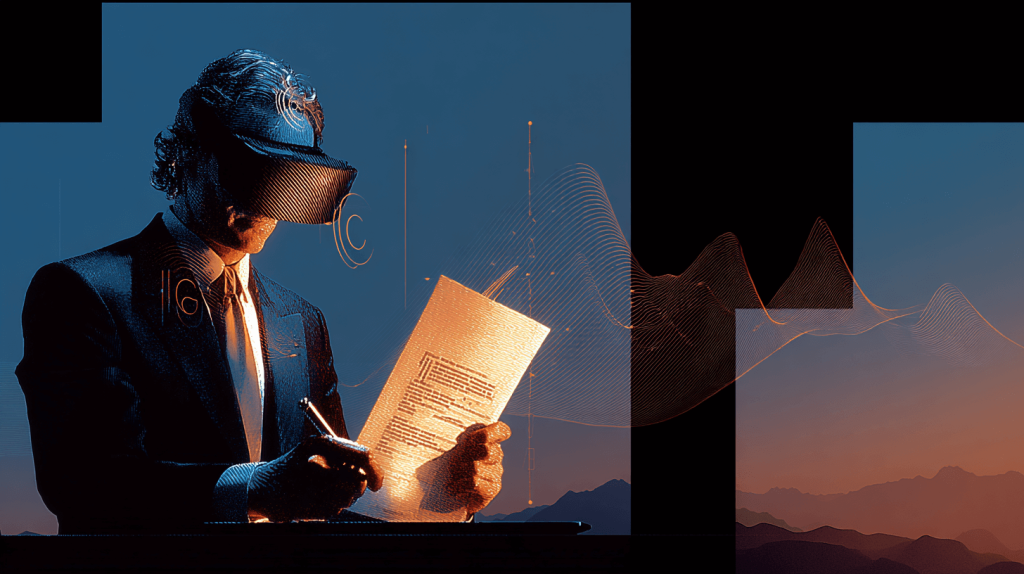Artificial intelligence (AI) has moved beyond futuristic dramas and TV shows; the age of artificial intelligence and machine learning is officially here, and you might be surprised to know how often it’s used in daily life. Consumers are using AI throughout the day without even knowing it’s there. For example, there are more obvious usages like facial recognition to log in to smartphones and voice assistants to write text messages or complete a search query. However, there are also quiet, unobtrusive uses of AI that fly under the radar, like safety features behind ride-sharing apps and personalized Amazon shopping recommendations.
AI is bolstering innovation in revolutionary ways; from transforming everyday activities like auto-navigating GPS solutions to commonly visited areas (like your morning coffee) to more breakthrough applications in healthcare with sophisticated machines that detect cancer, artificial intelligence is the new frontier of intellectual property.
Artificial Intelligence Adoption
The global AI software market is expected to hit $126 billion by 2025, and the number of organizations adopting AI over the last few years has exploded by 270%, according to Gartner. Companies are embracing artificial intelligence with open arms. Those that don’t risk being left behind.
By 2025, an estimated 95% of customer interactions will be powered by AI, offering businesses that invest in AI technology a competitive advantage when it comes to intellectual property, efficiency, productivity, streamlined operations, and an improved customer experience. Key takeaways of IBM’s 2022 Global AI Adoption Index were that AI is helping address talent and skills gaps, and companies are more likely to invest in AI when it helps them hit sustainability goals.
However, it’s not all sunshine when it comes to AI adoption; it does still face significant challenges, mainly around businesses having limited AI knowledge, implementation and development costs being expensive, and projects being too difficult to scale. Data complexity is also a challenge, and leadership suites struggle to explain and justify AI-powered decisions.
AI “leaders” are pulling ahead of the pack when it comes to building modular data architectures, automating most data-related processes, and utilizing low-code or no-code programs; these leaders make up about 8% of the business population, according to McKinsey, and their next phase of AI usage and adoption lies in creating their own in-house technologies. With the creation of these technologies comes the inevitable concert to keep them out of the hands of competitors.
Characteristics of AI Leaders
According to McKinsey, these strong adopters of AI all have several traits in common.
From a strategy perspective, they’re more likely to have a business roadmap that prioritizes AI initiatives across multiple departments. Their senior leadership is more likely to be on board, and they’re also connecting the dots between AI usage and revenue. They can also quickly integrate AI models in real time and use a full lifecycle approach when it comes to deploying models. While McKinsey states that this bucket of AI leaders has not grown over the last years, the gap between these top performers and other businesses is widening.
While these AI leaders are impressive, the average business is simply not there yet — 35% of businesses reported using AI in some capacity, and 42% are still exploring it, according to IBM’s 2022 Global AI Adoption Index. Organizations might be slow to adopt AI due to some concerns around consumer trust in the tool; IBM states that a majority of businesses haven’t taken steps to implement AI due to worries about their AI being trustworthy and responsible.
Can you patent AI?
With the rate of AI adoption increasing exponentially, organizations have a real opportunity to capitalize on their own technology. Artificial intelligence sits at the intersection of “machine learning, language processing, and systems management” and offers multiple benefits for businesses.
AI helps predict behavior, make judgment calls, and recognize patterns, and with this growing market comes the need to patent these proprietary innovations. Businesses across the board, from AI leaders to moderate users, are going full steam ahead in patenting any applicable proprietary technologies.
Can AI Be Named as the Inventor on a Patent?
As artificial intelligence is nothing without human input, and AI falls under intellectual property. Intellectual property (IP) is defined as a product of the human intellect that is protected by law from unauthorized use, but innovators also must determine if their work falls under the patent eligibility framework set out in 35 U.S.C. § 101. In June 2022, a computer scientist tried to argue his AI system could be credited to two separate inventors; however, the three-judge panel seemed skeptical and ultimately ruled against him. In August of 2022, The Federal Circuit ruled an inventor must be human.
Can You Patent Artificial Intelligence?
While some remain uncertain if artificial intelligence is patentable, this hasn’t stopped companies from racing to patent their artificial intelligence IP. Many companies have not stopped to consider “Can we patent AI?” and instead rushed ahead to “How much can we patent?”
Patent filing has surged, and from 2002 to 2018, annual AI patent applications increased by more than 100%, highlighting an influx of innovation, with companies seeking to safeguard this IP immediately. According to the resource “Inventing AI” from the Office of the Chief Economist, active AI inventor-patentees started at 1% in 1976 and skyrocketed to 25% by 2018. AI has effectively diffused through multiple technology classes, from machine learning to knowledge processing to speech and natural language processing, giving organizations a multitude of ways to patent their inventions and ideas.
One significant concern of patenting artificial intelligence revolves around the time and cost of the process when technology becomes outdated so quickly. A rapid solution to this is copyright and trade secret protections while your team decides if the AI IP is worth pursuing. Each AI technology invention should be assessed carefully and closely to measure its long-term potential.
How Many AI Patents Are There?
The number of AI patents has surged over the last few years; there are roughly 18,753 as of 2021. The largest increase in AI patents filed was in 2022, recording the highest average annual growth rate (AAGR) of 28%.
What company is leading the AI patent race?
Tech giants hold the top of the leaderboard when it comes to patent quantity. Google tops the list of EU patents with 266, followed closely by Samsung Group with 187. Microsoft, Intel, Siemens, Nokia, and Northrup Gruman are other global brands that make up the list, and when it comes to specific AI patents, IBM, Microsoft, and Google hold the top spots.
AI Patents By Country
Across the world, China leads the world in AI patents, filling for 389,571 patents over the last decade and making up 74.7% of the world’s AI-related IP protection. For China, a focus on “core algorithms, smart chips, and open-source open platforms” has accelerated their adoption of AI, utilizing these technologies to modernize various infrastructures.
After China, the United States comes in second with 1,416 AI patent applications, making up roughly 20%. The Republic of Korea falls in third with roughly 500 application filings. However, notable emerging countries like India are making their mark with AI-enabled technologies brought to life during the COVID-19 pandemic.
In 2020, India’s patent filing grew by 4%, and over 5,000 AI patents have been filed during the last decade. Similar to other countries’ emphasis on AI, 95% of India’s AI patents have been filed in the past five years. According to IBM’s report, Italy also has a surprising number of deployed AI technologies, followed closely by Singapore and the United Arab Emirates.
How AI Patents Help Companies Monetize and Protect Their Innovations
AI is poised to revolutionize multiple industries like healthcare, finance, manufacturing, clean/green technology, vehicles, and more. With this fundamental paradigm shift, AI patents hold high intrinsic value for businesses. Future-thinking organizations believe it’s critical for them to protect their AI. Their proprietary technology offers their organization distinctive competitive advantages when it comes to streamlining operations, driving increased efficiency, creating differentiated customer experiences, and more.
AI Patent Examples
Here are some AI patent examples for reference.
Cognitive Code’s AI Conversational Tools
Cognitive Code patented its AI system that simulates “one or more thinking people and uses text and/or speech to interact with users.” Calling this a major upgrade over “pseudo-artificial intelligence systems,” the business protects this invention under Patent US8126832B2. Cognitive Code is known for its revolutionary approaches to conversational devices, intelligent avatars, and machine processing.
Tesla’s Vehicle Machine Learning
Another interesting example is Tesla’s patenting of its AI program that determines and suggests the actions a vehicle will take. In a filing from November 2021 titled “Generating Ground Truth For Machine Learning From Time Series Elements,” Tesla argued for safeguards around its intellectual property on its self-driving autonomous vehicles. Using machine learning, the vehicle takes in sensory inputs from its surroundings and turns that into data to operate the vehicle safely. The model also learns on itself, creating a successful argument for the use of AI and machine learning and giving Tesla the right to patent US10997461B2.
ChatGTP’s Shaky Public Reception
Recently, ChatGTP launched as a conversational AI, sparking debates over the moral implications of increased AI usage. Specifically, the use of ChatGTP by students in universities was deemed unethical and problematic when it came to the AI platform for writing answers to essays. This recent launch brought the topic of AI morality back into the limelight.
Oral-B CrossAction Toothbrush
While many AI patent examples are futuristic-sounding applications that carry some concern, small examples are found in everyday life. The Oral-B CrossAction toothbrush garnered media attention for its use of AI to help consumers brush their teeth better. Costing a consumer $220, the toothbrush uses sensors to designate areas in the mouth that didn’t receive enough brushings and communicates this data through its app.
AI Patents: The Next Frontier
The future of AI is promising and also still up for grabs. Over the next several years, expect to see significant innovations in fields like healthcare, medical devices, manufacturing, retail, government, and finance. For example, USC Researchers are receiving $10.5 million a year to develop revolutionary machine-learning programs to detect cancer earlier, ultimately with the goal of saving lives and improving patient outcomes.
AI is also working hard to solve major global issues around the supply chain, protecting vulnerable systems from increasingly common cyberattacks that disrupt business across the globe. In finance, fraud detection systems are becoming increasingly sophisticated as criminals also step up their methods of attack; Face++ is an example of an emerging AI that utilizes face technology to secure users’ financial transactions.
Artificial intelligence is on the cutting edge of emerging technologies, and the race to protect valuable intellectual property will only increase. As organizations embrace tools like machine learning and language processing to streamline their operations, proprietary artificial intelligence will continue to become a valuable asset class in a business’s vault.
How To Secure An AI Patent And Safeguard Your Innovations
To truly safeguard your inventions, it’s critical to work with an experienced intellectual property attorney knowledgeable in software and AI innovations. An expert team helps you sift through confusing legal jargon around patent filings and can help you make a clear case for intellectual property.
If you’re wondering, “Is IP protection worth it?” the easy answer is “yes!” — especially for inventions with long-term utility; it’s worth the time and cost to protect this valuable property. As not all AI IP falls under the legal criteria, it’s helpful to have an experienced intellectual property attorney on your side to walk through these inventions with you.
AI is a critical component of forward-thinking business strategies to protect your competitive advantage and stay on the cutting edge of digital transformation. To learn more, book a strategy call with Rapacke Law Group here.




